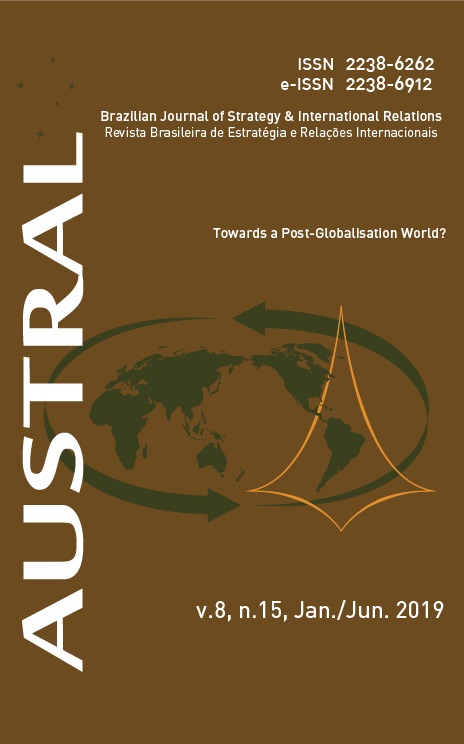EMERGING POWERS AND PEACE NEGOTIATIONS: THE EXPERIENCE OF BRAZIL IN THE NUCLEAR TALKS WITH IRAN
DOI:
https://doi.org/10.22456/2238-6912.91944Keywords:
Emerging Powers, Soft Power, Brazil, Teheran Declaration, Iran Nuclear ProgrammeAbstract
This paper addresses the role of emerging powers and the importance of Southern soft power resources in global peace negotiations. It aims to examine the performance of Brazil as a contributor to peaceful solutions and the de-escalation of international security tension. Brazilian assertive diplomacy during the Lula da Silva government (2003-2010) made special efforts to build bridges in international negotiations to transcend deadlock scenarios. This text will focus specifically on the 2010 Brazil-Turkey joint initiative – known as the Teheran Declaration – set forward to mitigate the international tensions caused by the Iranian nuclear program. Both countries worked together to persuade Iran to accept a fuel swap deal which could de-rail a new round of United Nations Security Council sanctions against Iran. The failure to change the course of Western-led coercive actions indicates the restraints emerging powers face as peace intermediators in global security. The lack of acknowledgement from Western powers, while effective to reverse the success of the Brazilian-Turkey initiative, also postponed positive outcomes in international negotiations with Iran. This text suggests re-visiting the consequences of this postponement, particularly after the Trump administration has walked away from the 2015 Joint Comprehensive Plan of Action with Iran.


